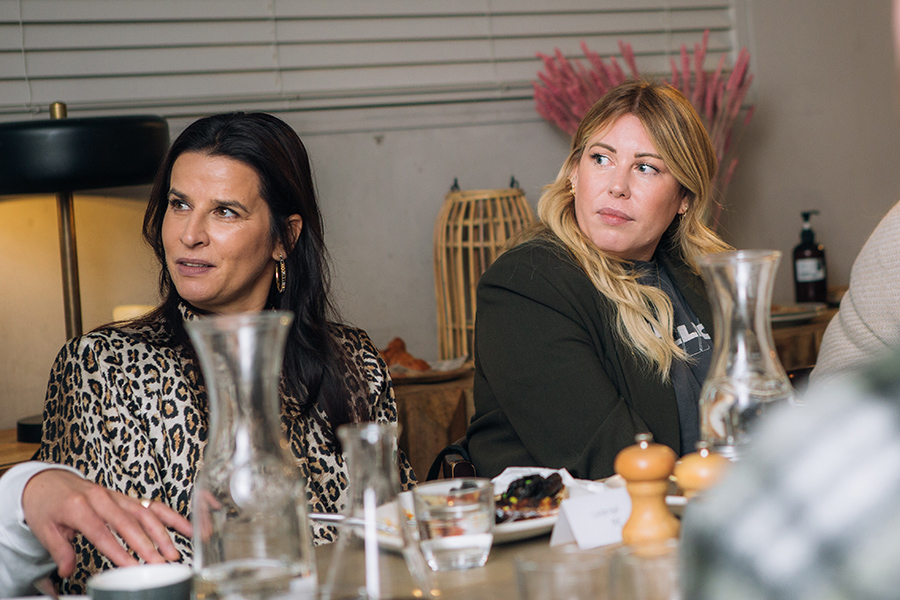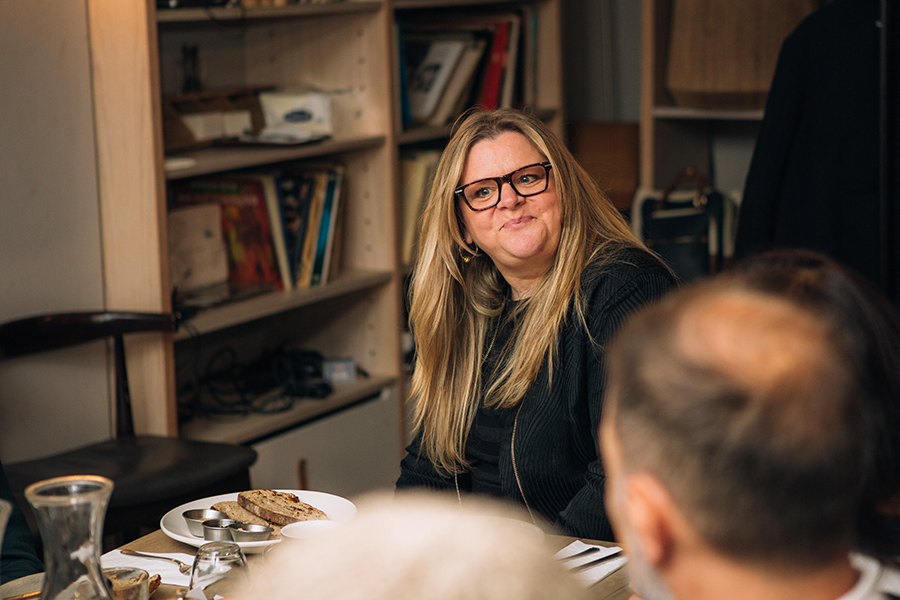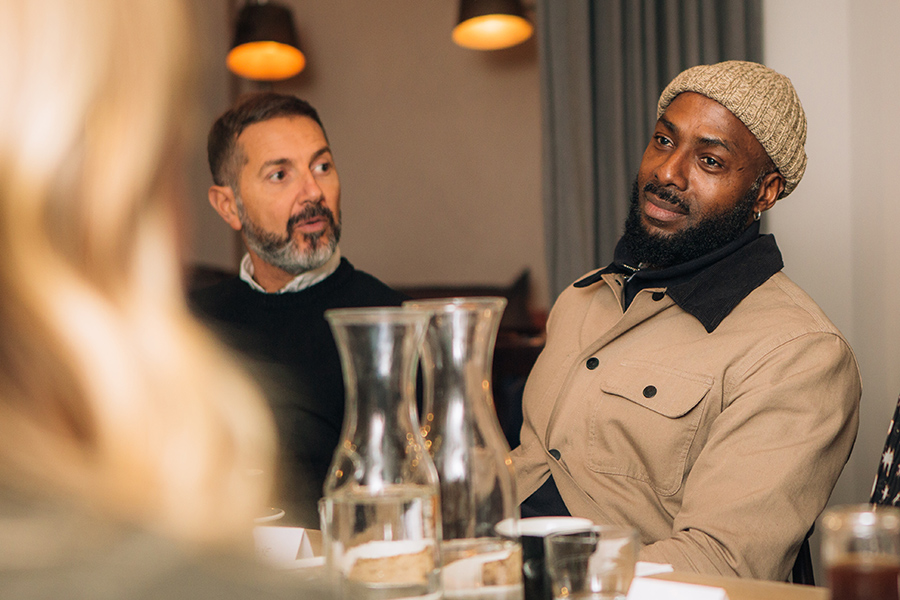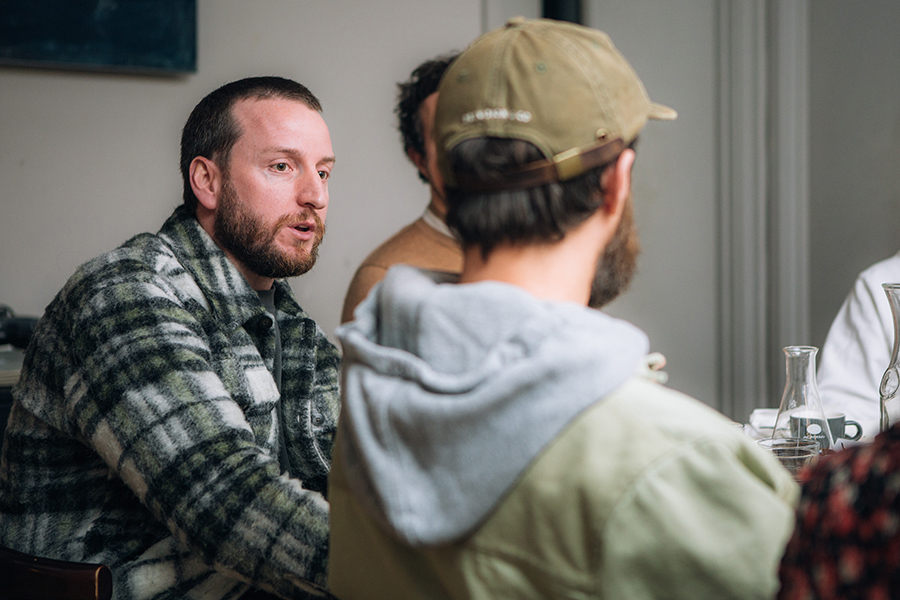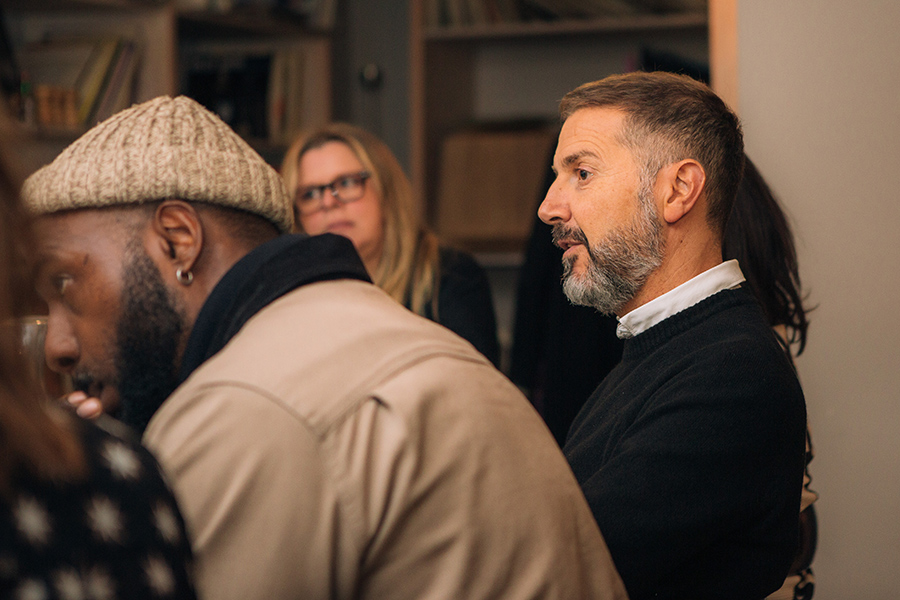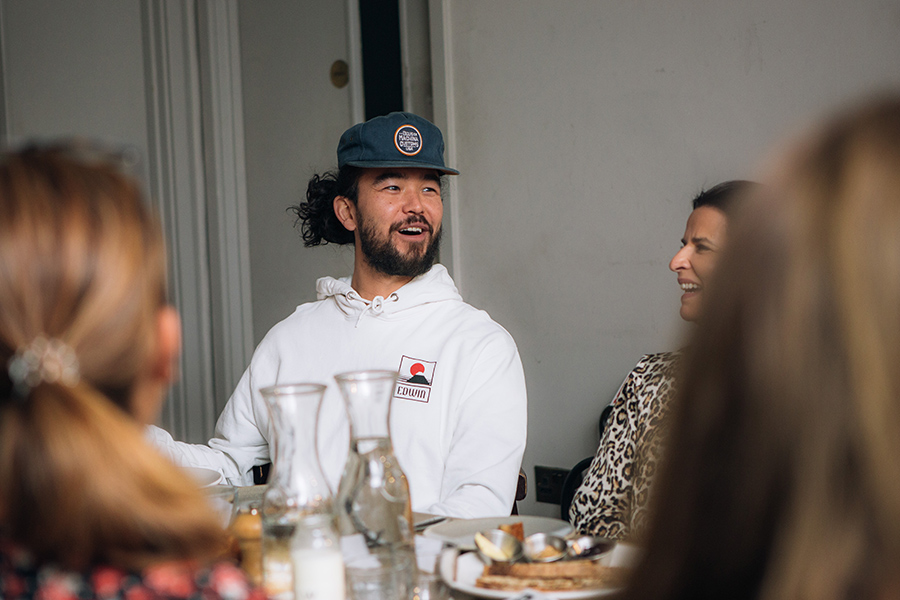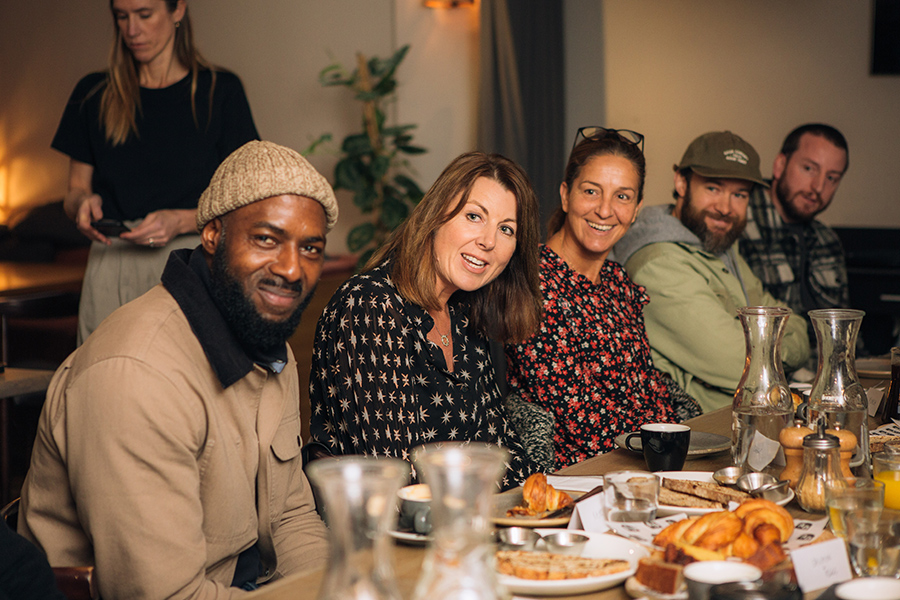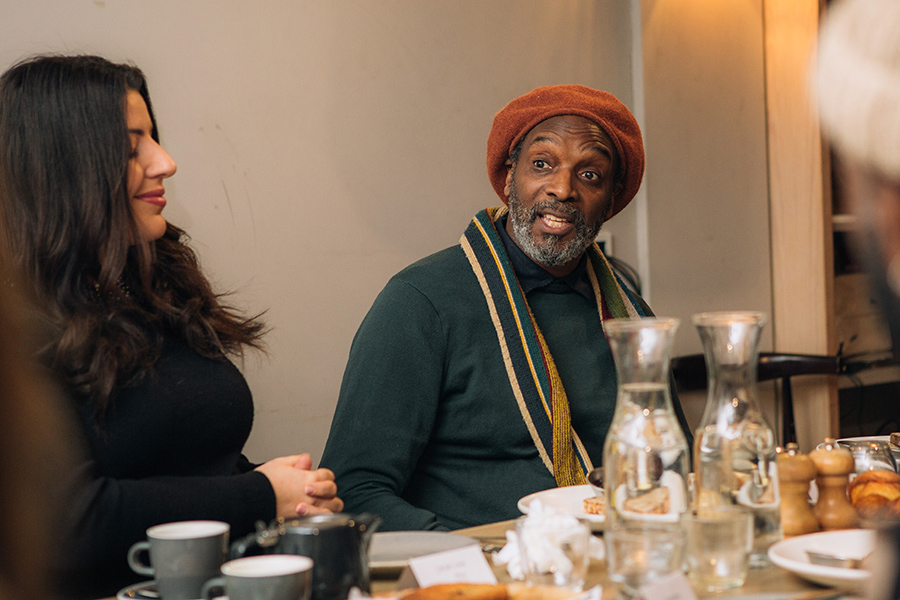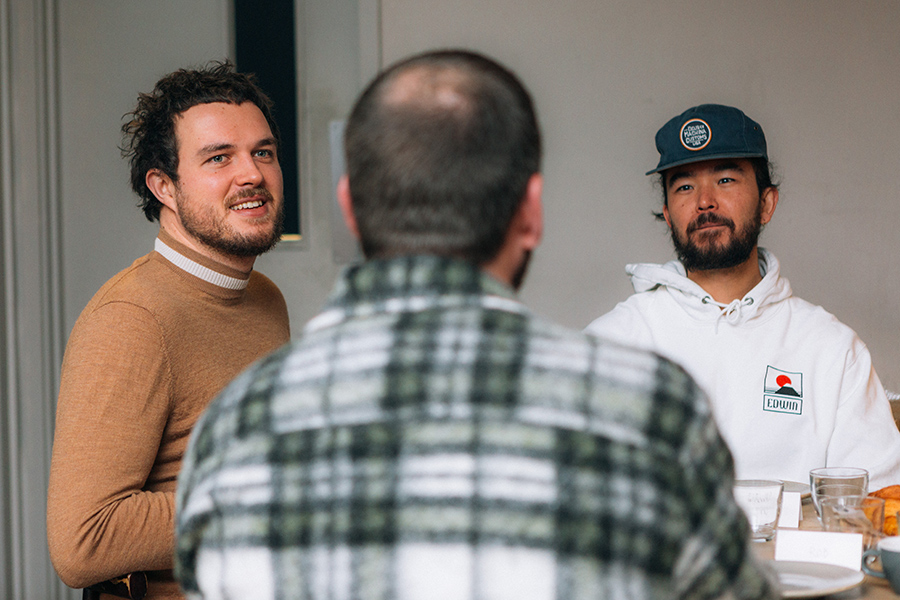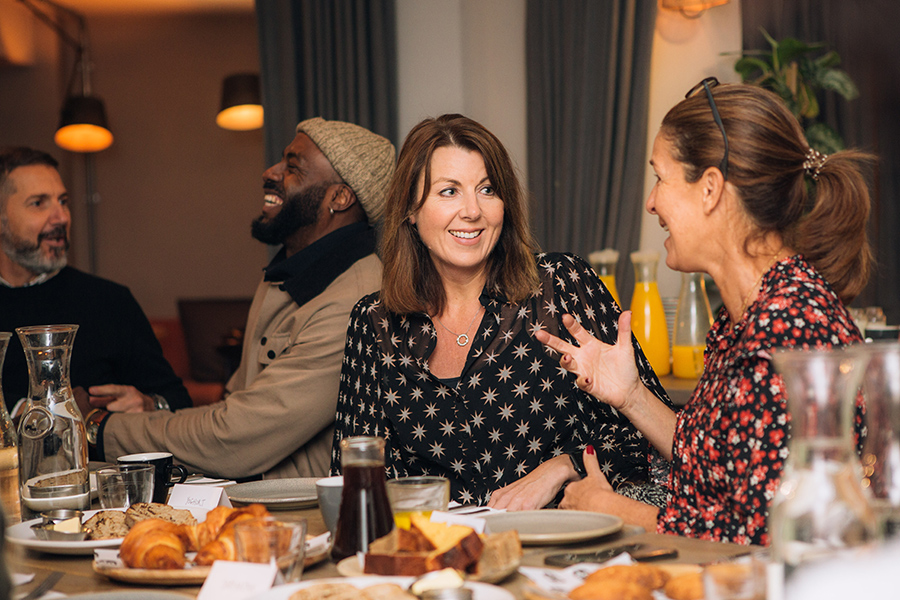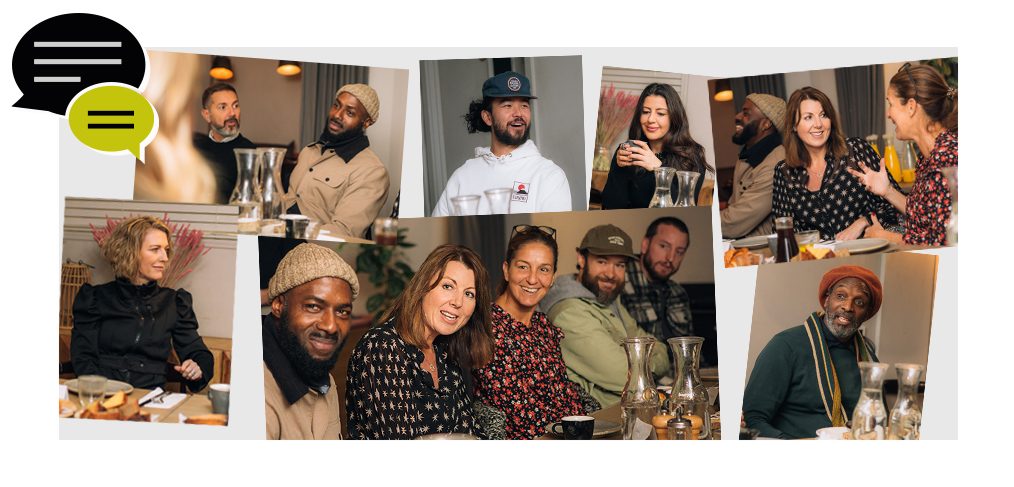
Hot Off The Press: Salon Smart HUB Business Breakfast – Take Three
Ready for your roundup? Straight from the table, get the inside scoop from our third Salon Smart HUB Business Breakfast
Hosted by Creative HEAD editor, Amanda Nottage and in partnership with L’Oréal Professionnel Paris, on Monday 29 November in London, salon and barbershop owners and managers came together for Salon Smart HUB’s third Business Breakfast of the year. Except, this time round it finally happened IRL, face-to-face, sat round an actual table in a real restaurant, rather than via Zoom.
Gathering on a chilly Monday morning at Caravan in London’s Fitzrovia and fuelled with coffee, croissants and poached eggs, leading hair professionals from across the UK shared their insight and opinions on a diverse range of topical subjects. From unsustainable staff turnover to persisting gaps in skills education, our breakfast attendees did not hold back – just the way we like it.
But the main takeaway? The reassurance felt by every attendee that they’re all facing similar challenges, and an appreciation of the opportunity to talk – proving once again that our industry is very much in it together.
Read on for the hot talking points…
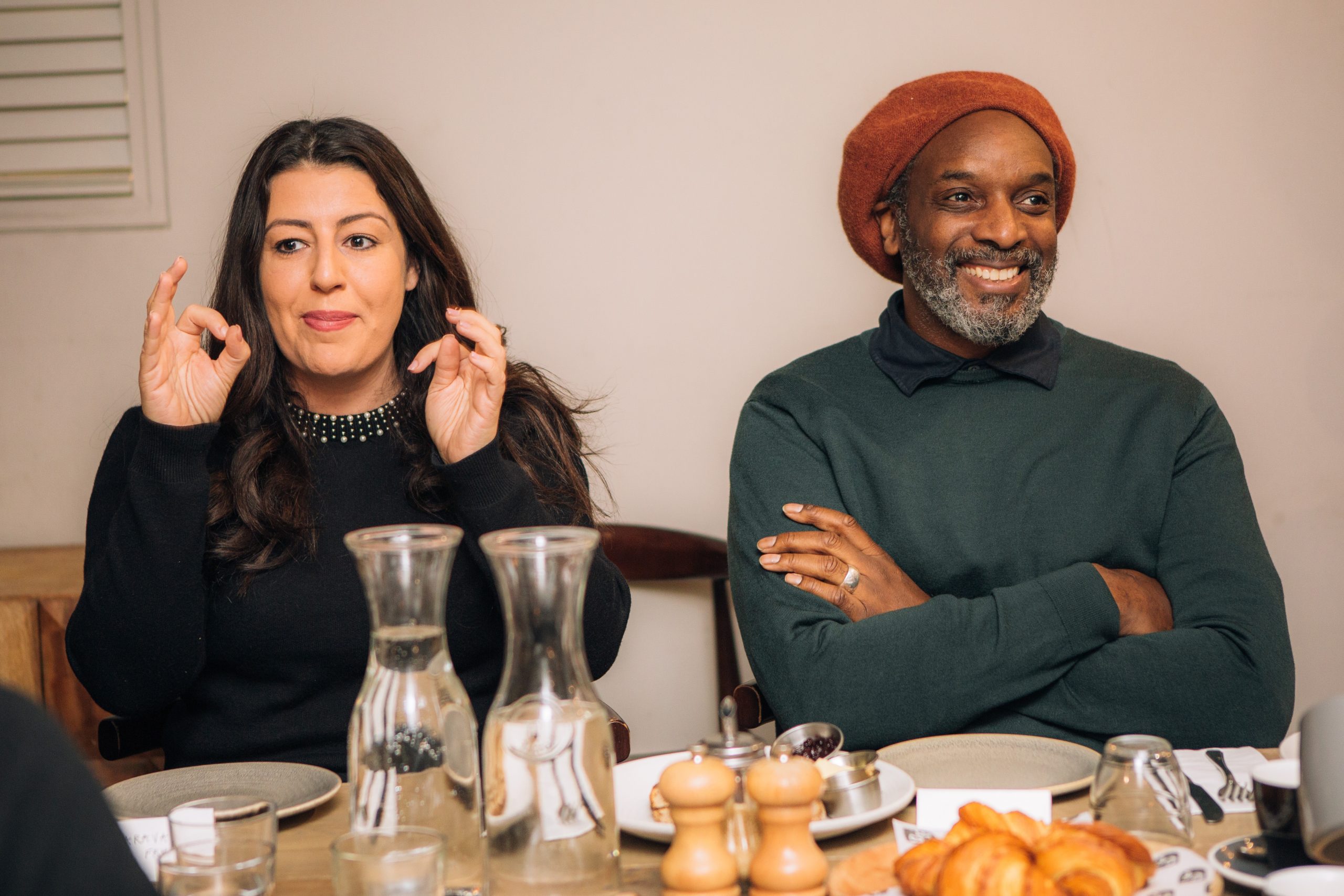

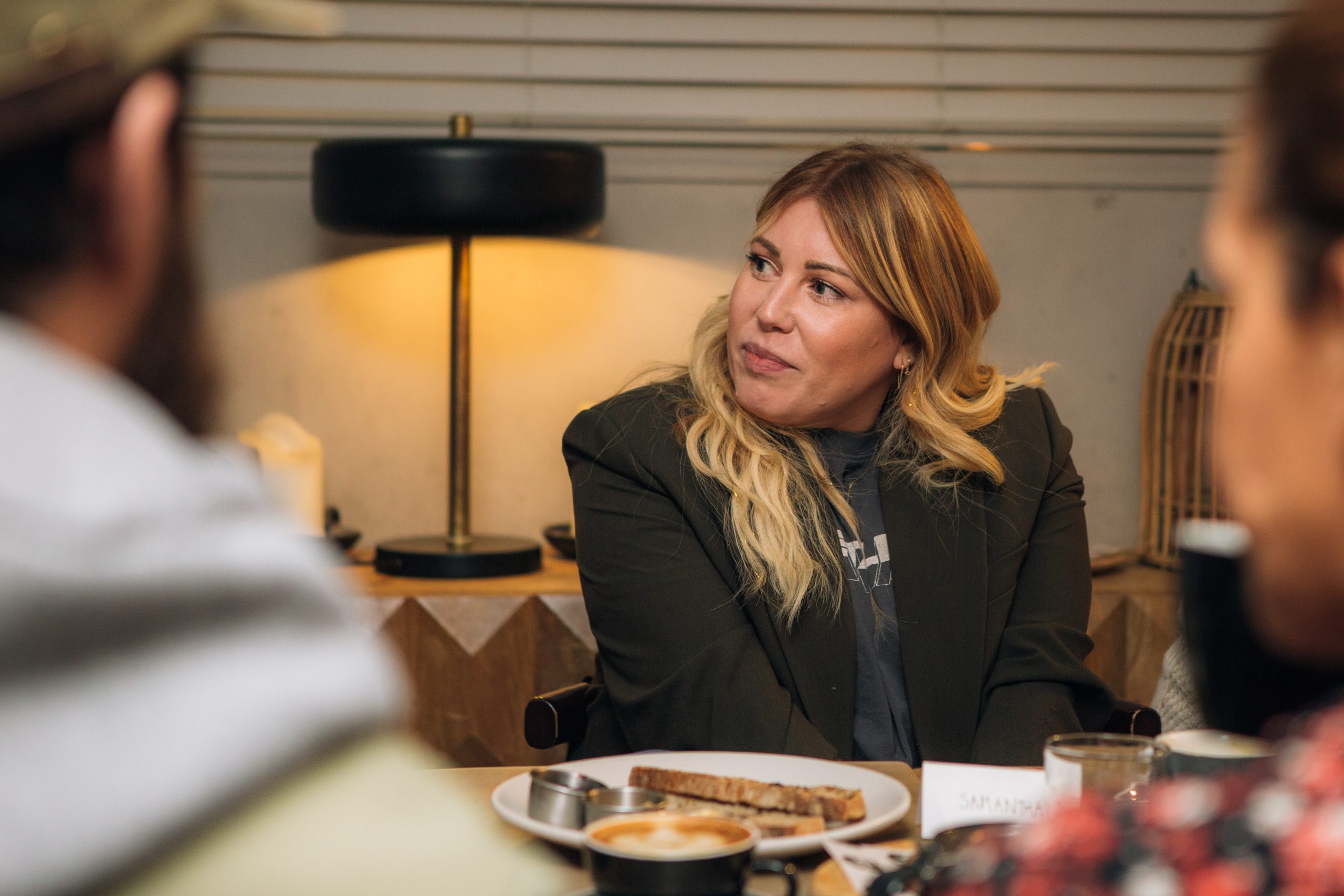
RETHINKING SERVICES
Embracing grey, turning to box-dyes and longer wait times between colour sessions have left some salons questioning how to effectively fill their columns. Attendees cited that due to the pandemic, they have felt an increased pressure to provide new or updated services that will better interest, retain or attract clients. Whether by enhancing styling or treatment menus, or providing alternative colour offerings – including carefully managed at-home colour kits between visits, the group shared a variety of approaches for keeping their services desirable and lucrative. Ultimately, those round the table did not appear to be significantly concerned with the demise of the colour client following lockdown, as they acknowledged the industry constantly experiences trends and change, but all were agreed in order to stay relevant it’s vital simply to get onboard – or get left behind.
“One thing we’ve been really focusing on since coming back is rebooking – people often forget to complete the service bill with the client but the bill goes all the way round…By focusing this alone, our rebooking rate has increased from 27 to 34 percent” – Samantha Cusick, Samantha Cusick London
NO MORE EXCUSES, GO GREEN
With COP26 having recently passed and an ongoing dialogue surrounding climate change, the topic of sustainability and ‘going green’ continues to dominate business – and rightly so, was the verdict of our attendees. The overwhelming consensus round the table was that there are no longer any excuses for not implementing greener and more sustainable practices. With support and resources readily available for salon and barbershop businesses, several attendees claimed the only thing stopping individuals from cleaning up their act is, in fact, themselves and a lack of genuine aspiration to follow through where others are leading. Although the cost of being more environmentally friendly was raised as a potential barrier for business owners, this was quickly quashed as simple solutions, such as adding a ‘green fee’ to every client bill [to help cover expenses], were recommended.
“Being green obviously comes at a cost and that’s why we implement a green fee…but the results have been amazing; we’ve now reduced our general waste by 75%” – Rob White & Lee Nash-Jones, Nashwhite
TALKING TEXTURE
The conversation of texture equality continues to spark debate, as was the case with our group, with important and insightful observations, clarifications, and advice being shared across the breakfast table. Most prominently, it was stated that there is still a way to go to ensure that all clients feel comfortable and welcomed in all salons and barbershops across the UK. The crux of this problem was reasoned to be a lack of decent and accessible education – from the fact training has only recently been added to NVQ courses, to an absence of available resources for already established hair professionals. It was generally agreed the industry needs to do more and to take accountability for the lack of education in this particular skills area. However, unsurprisingly, this was found to be frustrating for many in the room, with comments about the backwardness of the industry due to ‘texture equality’ still remaining a topic of conversation at all – and suggesting texture neutrality should be a given.
“Working with afro hair has to be normalised – if you have a business or you have a culture you absolutely have to make it clear that you’re not going to reject a customer that comes through the door who has textured hair” – Kaye Sotomi, ChopChop London
THE STAFFING CRISIS
Ongoing difficulties surrounding staff presented another key talking point, with an undeniable consensus that one of the biggest headaches for businesses right now is the dearth of floor-ready staff as well as constant team changeover. Unsurprisingly, several attendees cited lockdown as a catalyst for this crisis, including Chop Chop London’s Kaye Sotomi, who revealed 90 percent of his entire team had changed from 2019 to present day. Despite difficulties in retaining loyal employees, attendees still spoke positively about the prospect of gaining new staff and nurturing them within their businesses. Particular interest was sparked by Nashwhite during the talks as they explained an ‘apprentice versus assistant’ model – a unique distinction they’ve implemented between the roles of full-time apprentices and part-time assistants, with the objective being to free up the former from the more mundane roles and hospitality-focused duties [managed by the assistants], ensuring apprentices get 100 per cent hands-on learning experiences with hair. This alternative employment model aims to retain new talent, making the investment worthwhile.
“I’ve never seen as much churn in a single year as I’ve seen this year…we’re spending a lot more time, a lot more effort and a lot more money on recruitment” – David Hewitt, The Salon of Chi
SHIFTING THE STIGMA
Interestingly, opinions were unanimous on the serious issue of hairdressing and barbering remaining an undervalued profession – from it still being snubbed by parents and schools as a viable career option, to clients pushing back on price increases, there is a definitive notion that the narrative needs to change in order for hair professionals to feel more respected and valued. All this, despite the pandemic demonstrating to the public that hair is best left to the professionals. On pricing, however, the room was divided on the view that a nationwide raise in rates would force customers to accept hairdressing as a higher-priced skill, with the argument given that pricing structures must cater to all matter of needs, including those who cannot afford high services charges.
“In order to shift the stigma of hairdressing not being a skilled profession, we need to start from a younger age and let young people know it’s a great career and requires serious skill” – Nadia Suliaman, Forbici Knightsbridge
Enjoyed what you’ve read but want to hear more? We’ve got you covered…Over the coming weeks and months, we’ll be delving deeper into the topics mentioned. So, keep your eyes peeled!
← Got something to say about what you’ve read today? Want to put your name forward for a future Business Breakfast? Drop us an email!


